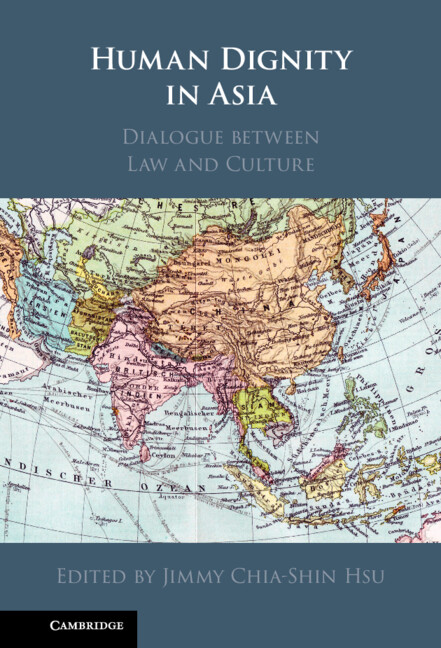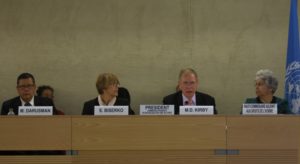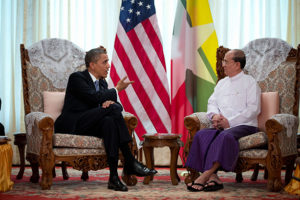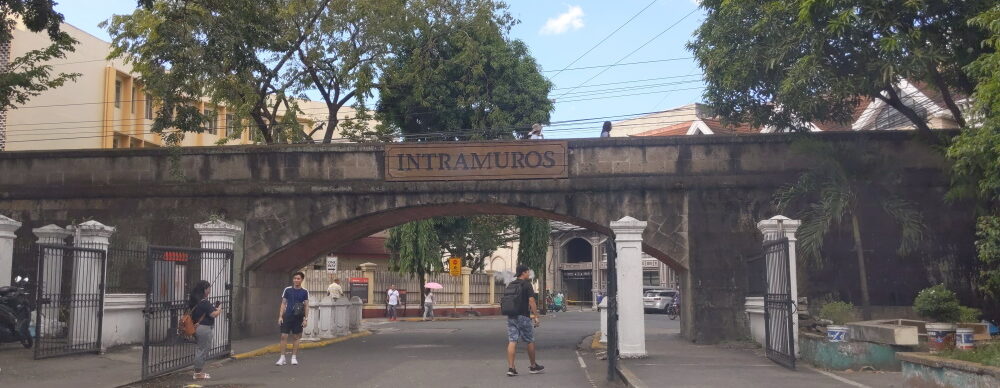Catholicism and Human Dignity in the Philippines
in Jimmy Chia-Shin Hsu (ed). Human Dignity in Asia: Dialogue Between Law and Culture (Cambridge: Cambridge University Press, 2022)
Keywords: Catholic Church, Philippines, bishops, human dignity, human rights, solidarity, Catholic Bishops’ Conference of the Philippines (CBCP), imago Dei

Abstract: This chapter reviews Catholic teachings regarding human dignity and how the Catholic Bishops’ Conference of the Philippines (CBCP)—the official representative of the Catholic hierarchy in the Philippines—has interpreted and attempted to implement them in several issue areas, including capital punishment, contraception, poverty, and electoral fraud. Catholic doctrine teaches that all people possess intrinsic dignity because they have been created in the image of God (the imago Dei), thereby imposing certain moral principles regarding the treatment of oneself and others, including solidarity, the preferential option for the poor, and the sanctity of human life. The Church’s application of these teachings in the Philippines has taken on distinct local characteristics shaped by high levels of societal poverty, economic inequality, and corruption, as well as the Church’s historically strong political influence. The Catholic bishops have harnessed the concept of human dignity to point out dehumanizing practices in Philippine society and call for greater respect for the sanctity of human life. In recent decades, though, the Church’s moral authority in the Philippines has been severely challenged by changing political dynamics, revealing the limits of its ability to promote Catholic teachings on human dignity.
(with Leif-Eric Easley)
Contemporary Security Policy 40:4 (2019), pp. 502-525
Keywords: Myanmar politics; China foreign relations; North Korea nuclear weapons; authoritarian regime transitions; economic and security reliance; pariah states

Abstract: Pariah status for violating international norms over decades increased Myanmar and North Korea’s dependence on China. Myanmar’s post-2010 reforms sought to reduce international sanctions and diversify diplomatic relations. North
Korea pursued a diplomatic offensive after the 2018 Winter Olympics, but
only after declaring itself a nuclear state. Why, despite both states’ politically
unsustainable dependence on China, did Myanmar and North Korea pursue
different strategies for renegotiating reliance? Unlike the Kim regime,
Myanmar’s junta could step back from power while protecting its interests.
Pro-democracy leader Aung San Suu Kyi was a credible signaler of reforms,
providing Western governments political cover to reduce sanctions. Myanmar
used liberalizing reforms to address internal threats, whereas North Korea
utilizes external threats for regime legitimacy. The theoretical underpinnings
and empirical trajectories of these distinctions–as well as Myanmar’s
backsliding on human rights–explain why reducing reliance on China may
prove more difficult than shedding pariah status.
North Korea’s Participation in the Universal Periodic Review of Human Rights
Australian Journal of International Affairs 70 (2016), pp. 1-18
Keywords: Democratic People’s Republic of Korea; North Korea;
Universal Periodic Review; United Nations; Human Rights Council; Commission of Inquiry; human rights peer review; Special Rapporteur

U.S. Mission Geneva/ Eric Bridiers Public Domain,
Abstract: North Korea’s participation in the UNHRC’s Universal Periodic Review (UPR)—a peer review in which states make recommendations to one another for improving human rights implementation—is a notable exception to its rejection of other human rights mechanisms. What explains North Korea’s willing participation in the UPR? This essay analyses North Korea’s participation in the first (2008–11) and second (2012–15) UPR cycles through its written submissions, responses to recommendations, and recommendations to other states. It finds that North Korea has consistently accepted weak recommendations, rejected more specific policy changes, and implemented accepted recommendations on a limited basis, allowing it to claim compliance with human rights at minimal cost. The UPR’s reliance on states’ self-reports and its inability to adjudicate competing factual claims allow North Korea to reject claims of egregious abuses, openly advocate for a radically state-centric vision of human rights, and challenge the legitimacy of human rights mechanisms like the Commission of Inquiry and Special Rapporteur while building support from other states with similar views. Notably, the Commission of Inquiry appears to have motivated North Korea to increase its cooperation with the UPR, demonstrating that the UPR complements but cannot replace other UN human rights mechanisms.
Persuading Pariahs: Myanmar’s Strategic Decision to
Pursue Reform and Opening
(with Leif-Eric Easley)
Pacific Affairs 89:3 (2016), pp. 1-18
Keywords: Myanmar/Burma, China, ASEAN, sanctions, pariah states, authoritarian transitions, Aung San Suu Kyi
Abstract:

Myanmar’s liberalizing reforms since late 2010 have effectively shed the country’s decades-long “pariah state” status. This article evaluates competing
explanations for why Myanmar’s leaders made the strategic decision to pursue reform and opening. We examine whether the strategic decision was motivated by fears of sudden regime change, by socialization into the norms of the Association of Southeast Asian Nations (ASEAN), or by the geopolitics of overreliance on China. Drawing on newly available materials and recent field interviews in Myanmar, we demonstrate how difficult it is for international actors to persuade a pariah state through sanctions or engagement, given the pariah regime’s intense focus on maintaining power. However, reliance on a more powerful neighbour can reach a point where costs to national autonomy become unacceptable, motivating reforms for the sake of economic and diplomatic diversification.
The Perils of Consensus: How ASEAN’s Meta-Regime Undermines Economic and Environmental Cooperation
(with Vinod K. Aggarwal)
Review of International Political Economy 17:2 (2010), pp. 262-290
Keywords: ASEAN; haze; forest fires; regionalism; AFTA; noodle bowl regionalism; bilateral trade; ASEAN Economic Community; norms; non-interference

Abstract: The member states of the Association of Southeast Asian Nations (ASEAN) have been frequently criticized for adhering to a long-standing norm of strict non-interference in each other’s domestic affairs, thereby hampering collective efforts to address regional problems. This article presents an analytical model of international institutions that shows how underlying norms and principles – the meta-regime – govern the rules and procedures of specific international regimes. It then applies this model to ASEAN’s trade and anti-haze regimes, demonstrating how ASEAN’s underlying meta-regime has frustrated attempts to liberalize trade and reduce air pollution. While ASEAN’s purview has extended well beyond its original security mandate and it has developed new rules and procedures to handle the new issues, its underlying norms and principles consistently limit its ability to handle regional problems. In the conclusion, we discuss how the ASEAN states might be able to foment cooperation in these issue areas without completely abandoning its foundational norms and principles.
ASEAN Counterterrorism Cooperation Since 9/11
Asian Survey 45:2 (2005), pp. 302-321
Abstract: This article examines ASEAN’s intramural counterterrorism cooperation from 9/11 through the Bali bombing of October 2002 and its effects on ASEAN’s cohesion and the norm of non-intervention in members’ domestic affairs. While the Bali bombing appeared to unify threat perceptions, domestic imperatives have significantly hindered substantive multilateral counterterrorism efforts.
